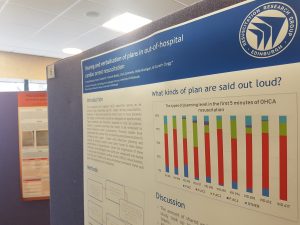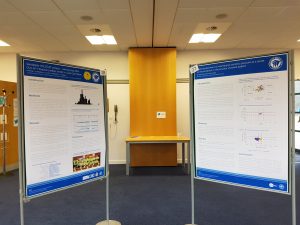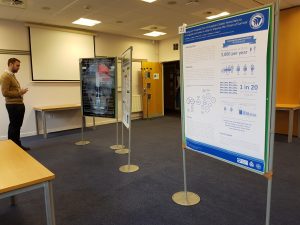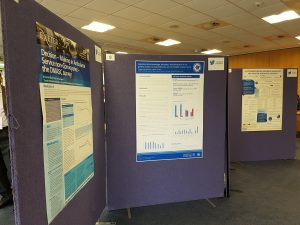PADmap is coming!
Scottish Government and St John Scotland have confirmed funding to enable the PADmap web portal. This website, to be built by Daysix (www.daysix.co) will allow individuals, communitites and decision makers to see mathematically optimised location suggestions for the placement of public access defibrillators.
This website will build on the work already done by Ben Leung (Tim Chan’s group – Centre for Analytics and AI Engineering at the University of Toronto) and Diane Lac to build the optimisation model and gather data from potential users to guide design.
PADmap should be completed by the end of Q2 2024.
See also:
The 2th November 2023 was the 15th EMERGE day conference.
Susan Gardner presented a summary of the work the Save a Life for Scotland partnership has done in the last year under the headings of Young People, communities, inequalities and Culture.
Dominika Skrocka showed details of this year’s Scottish Cardiac Arrest Symposium – SCAS23.
SCAS is series of events where we be highlight the change in culture and clinical outcomes after out-of-hospital cardiac arrest across Scotland following the launch of Scotland’s Strategy for OHCA.
SCAS23 ‘Getting our SHIFT together’ was staged at the Hilton Doubletree at Edinburgh Airport on October 6th. It was a highly informative and entertaining day with a series of TED-style talks including keynotes by Prof Jason Leitch, National Clinical Director for the Scottish Government and Professor Lionel Lamhaut, program lead for Prehospital ECMO-CPR at the University Hospital of Necker-Paris. Key themes included Health Inequalities and Out-of-Hospital Cardiac Arrest, high quality pre-hospital Advanced Life Support, ECMO-CPR, bystander aftercare and the GoodSAM responder app.
The event was free to attend and view thanks to our industry sponsors including Zoll Medical, Mindray and Ortus. For further information about SCAS23 or to watch the presentations online go to www.scas.scot.
The Resuscitation Research Group showcased their latest projects at the recent prehospital research conference in Stirling.
Ernisa Marzuki, Paul Gowens, Frank Prior, and Gareth Clegg all attended the EMS999 Research for Impact forum in 999 Emergency Care hosted by the Scottish Ambulance Service and the University of Stirling. Gareth Clegg delivered an inspiring speech about “Prehospital research and the (C) ABC of Out-of-Hospital Cardiac Arrest” – (C) ABC standing for: Complaint, Audit, Basics, Clever Stuff
“You have the opportunity to change your world and the world for your patients, what kind of dent are we going to leave in the world when we move on?”
Our group presented five posters in total:
Linking pre-hospital Out-of-Hospital Cardiac Arrest data to in-hospital outcomes in order to improve the ‘Chain of Survival’
Sandpiper WILDCAT project – saving lives after Out-of-Hospital Cardiac Arrest in rural Grampian
Exploring the knowledge, attitudes and behaviour of the general public to responding to Out-of-Hospital Cardiac Arrest (in partnership with the University of Stirling)
Sharing and verbalisation of plans in Out-of-Hospital Cardiac Arrest resuscitation
Rapid assessment of membrane osmotic pressure as a guide to resuscitation in the acutely shocked patient
The forum aimed to encourage, promote and disseminate research and evidence-based policy and practice in 999 health-care.
A range of organisations, businesses, clubs, groups and communities across Scotland have already installed an Automated External Defibrillator. Many make them available to the general public and visible to emergency services: such Public Access Defibrillators (PADs) are key to strengthening community readiness to respond to an OHCA.
While RRG is working with partners to gather evidence on how PADs might best be used in Scotland, we are eager to offer advice to those thinking of placing a PAD in their community.
This guide, prepared by the OHCA Strategy Delivery Group, aims to outline key things that individuals and communities should consider before purchasing and installing a PAD.
Special thanks to John Fotheringham for his work in drafting the guide.




